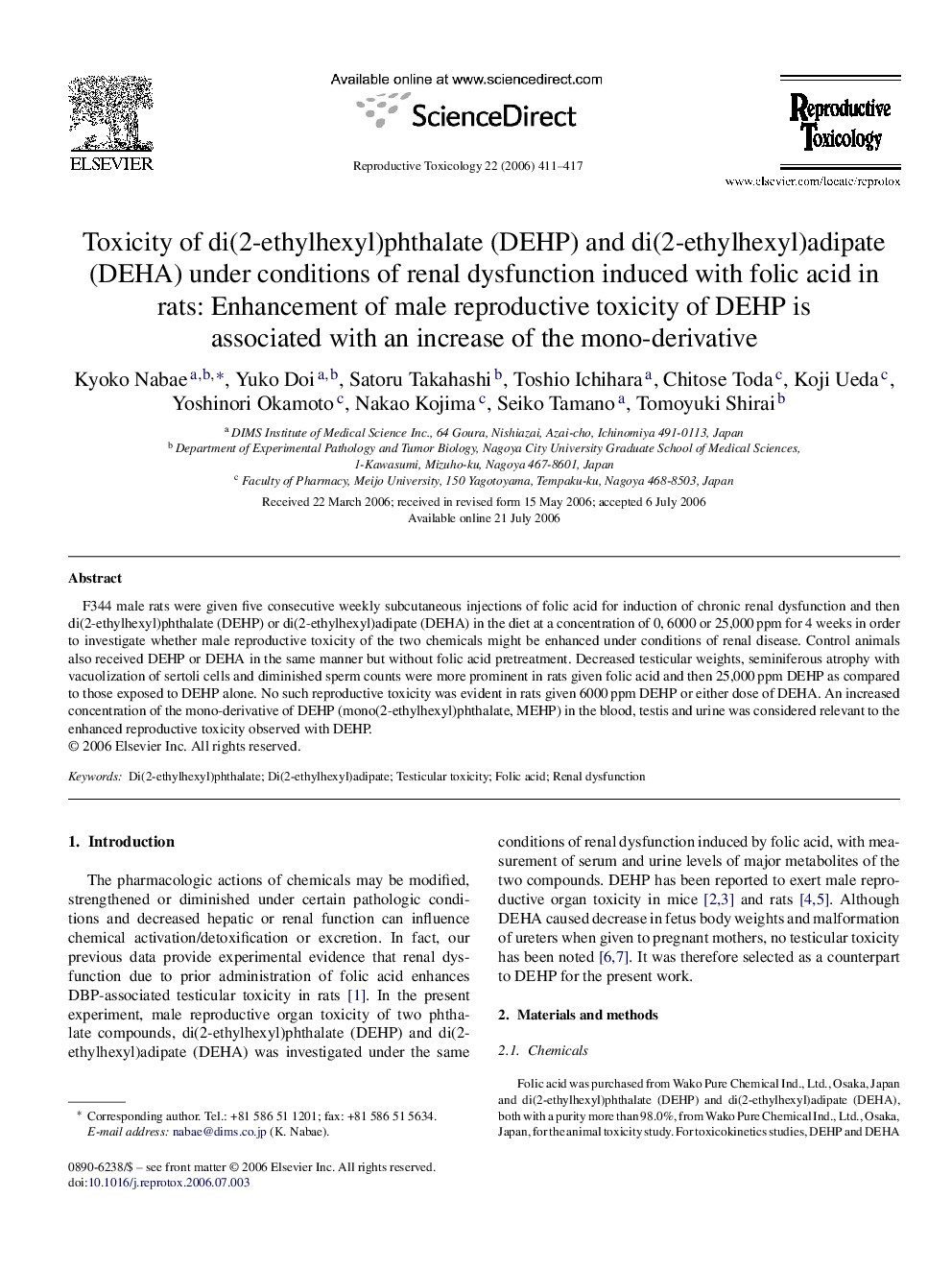| Article ID | Journal | Published Year | Pages | File Type |
|---|---|---|---|---|
| 2595065 | Reproductive Toxicology | 2006 | 7 Pages |
F344 male rats were given five consecutive weekly subcutaneous injections of folic acid for induction of chronic renal dysfunction and then di(2-ethylhexyl)phthalate (DEHP) or di(2-ethylhexyl)adipate (DEHA) in the diet at a concentration of 0, 6000 or 25,000 ppm for 4 weeks in order to investigate whether male reproductive toxicity of the two chemicals might be enhanced under conditions of renal disease. Control animals also received DEHP or DEHA in the same manner but without folic acid pretreatment. Decreased testicular weights, seminiferous atrophy with vacuolization of sertoli cells and diminished sperm counts were more prominent in rats given folic acid and then 25,000 ppm DEHP as compared to those exposed to DEHP alone. No such reproductive toxicity was evident in rats given 6000 ppm DEHP or either dose of DEHA. An increased concentration of the mono-derivative of DEHP (mono(2-ethylhexyl)phthalate, MEHP) in the blood, testis and urine was considered relevant to the enhanced reproductive toxicity observed with DEHP.
